Missouri Flower Exchange connects 17 women-led flower farmers to consumers statewide
Ginny Randall, Angela Morton and Elizabeth Talbot move swiftly, placing buckets of vibrant, fragrant flowers into the back of their minivans, ready for delivery.
"I never thought I'd do that," Randall said with a laugh, about purchasing her first minivan for the purpose of efficient flower transportation.
The three women are the founders of Missouri Flower Exchange, Missouri's first flower farm collective based in Springfield. Seventeen flower farms in the state participate in the collective, all with an interest in cultivating native flowers for local florists and customers.
Established in spring 2022, Missouri Flower Exchange is a part of the nationwide Rooted Farmers network, an online sales platform that aids flower farm collectives, individual farmers and florists in connecting with each other and selling products. Based in New Hampshire, Rooted Farmers was founded by flower farmer Amelia Ihlo in 2019.
How does the collective work?
Flower farmers interested in joining the Missouri Flower Exchange must apply and meet the collective's standards. Once accepted, farmers create accounts for their businesses through Rooted Farmers, which allows them to post what products they have available on the Missouri Flower Exchange website.
In an effort to connect farmers and florists, florists may make free Rooted Farmers accounts, allowing them to pre-order products from the collective.
Each Wednesday, members of the collective meet at Dancing Donkey Flower Farm (Randall's farm) for their weekly marketplace. At the marketplace, florists who placed pre-orders may pick them up and peruse the collective's open floor, which includes extra flowers the farmers had available for the week.
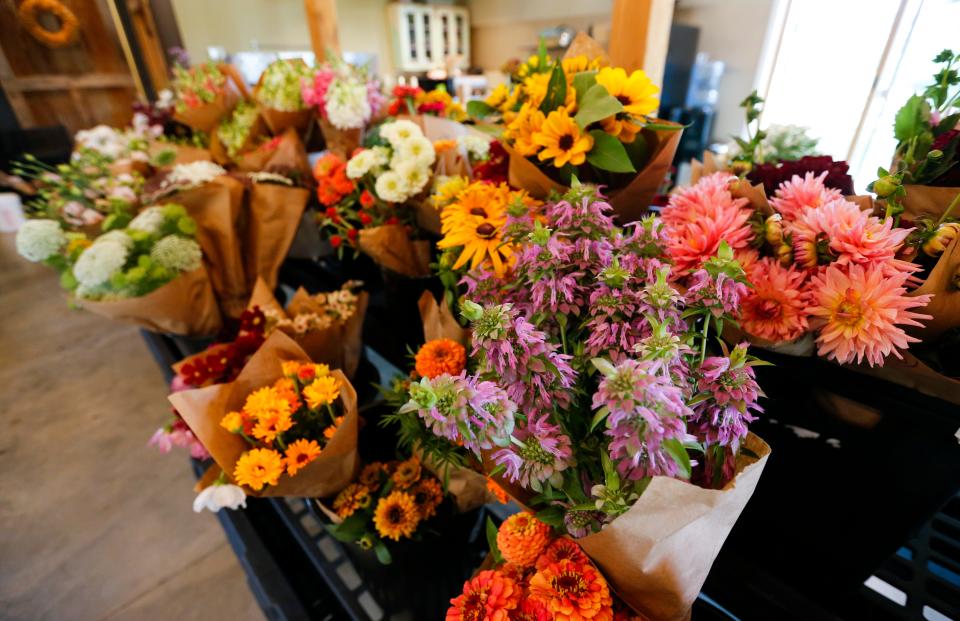
Following the marketplace, Randall, Morton and Talbot load up their vans and deliver flowers to florists who may not be able to make it to the marketplace. Missouri Flower Exchange's marketplace and delivery service is available during the field flower season, which is March through October.
Talbot said more than 55 area florists, including individuals who work from their homes and brick-and-mortar stores, have connected with the collective online. But on a regular weekly basis, 15-20 florists participate in the marketplace.
The women said they hope to create some sort of more direct consumer marketplace in the future, but as of now, the weekly marketplace is only open to florists with larger orders. Consumers interested in purchasing native flowers from local farmers should consult with local florists, Morton said.
Uncharted territory
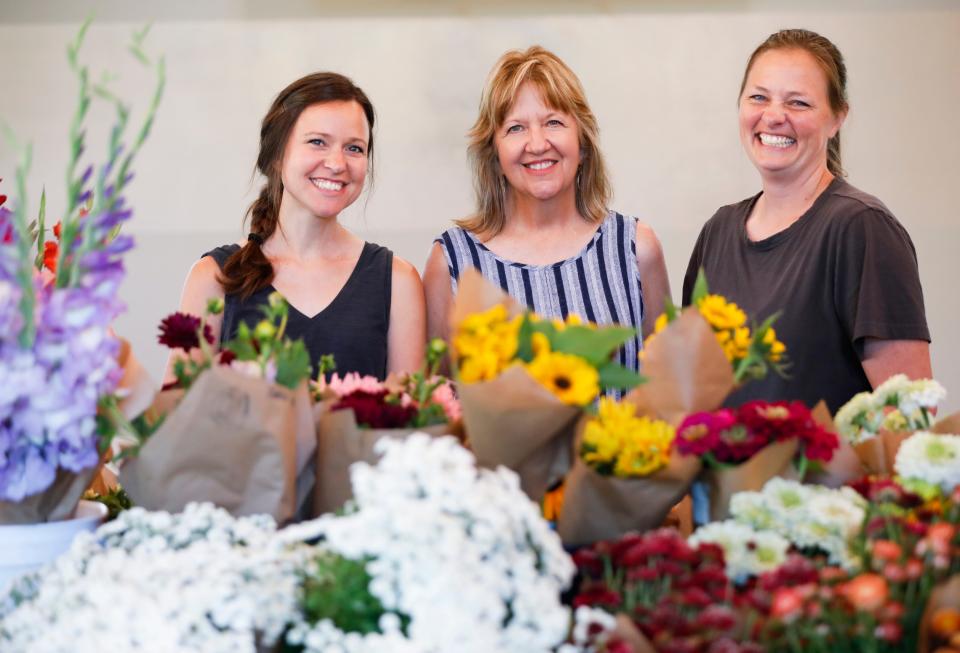
In addition to an online point of sale system, Rooted Farms provides collectives with online workshops for beginners, which is what helped Randall, Morton and Talbot get started.
Before officially establishing Missouri Flower Exchange, the three women, along with other local flower farmers, met in coffee shops — often closing them down — talking about the need for some sort of organized flower farmer group. Although Randall, Morton and Talbot all have backgrounds in business, the three had never managed a collective before and they were all relatively new to the flower farm industry. Randall and Morton have managed their farms for three years and Talbot for five.
Last year, Rooted Farmers, in collaboration with The Gardener's Workshop based in Virginia, offered four grants to help groups across the country kickstart their collectives. Randall, Morton and Talbot learned about the grant just two weeks before it was due but decided to give it a shot. The grant required a cover letter, market analysis, revenue model, description of the collective's geographical distribution and a list of the participating farms, facilities and current funding resources.
Despite turning in the necessary paperwork just 10 minutes before the grant's deadline, the women were selected and received $800 to start up Missouri Flower Exchange, Talbot said. As a part of the grant, they also received free access to a Rooted Farmers workshop and discount codes to provide farmers to signup for the platform.
Expanding the collective
Missouri Flower Exchange began in southwest Missouri, where 14 flower farms participate in the collective.
These farms include Sunrise Farmstead in Elkland, Berries n' Blooms in Rogersville, The Hilltop Farm in Reed Springs, Meadow Stems Flower Farm in Springfield, Cedar Street Farms in Fair Grove, Dancing Donkey Flower Farm in Rogersville, Gooseberry Bridge Farm in Rogersville, Flora & Forge Farm in Springfield, Frizzle Flower Farm in Fremont Hills, Found Flower Farm in Springfield, Rebecca's Garden Studio in Marshfield, Genevieve LaLonde's farm, Midsommar Gardens in Springfield and Millsap Farm in Springfield.
This year, Missouri Flower Exchange welcomed three mid-Missouri flower farms to the collective, a part of a new Columbia branch. These farms include Cultivate Co. in Columbia, Titus Creek Flower Farm in La Plata and Three Creeks Farm + Forest in Ashland. This system, of multiple location branches in one collective, is new to the entire Rooted Farmers network, Randall said.
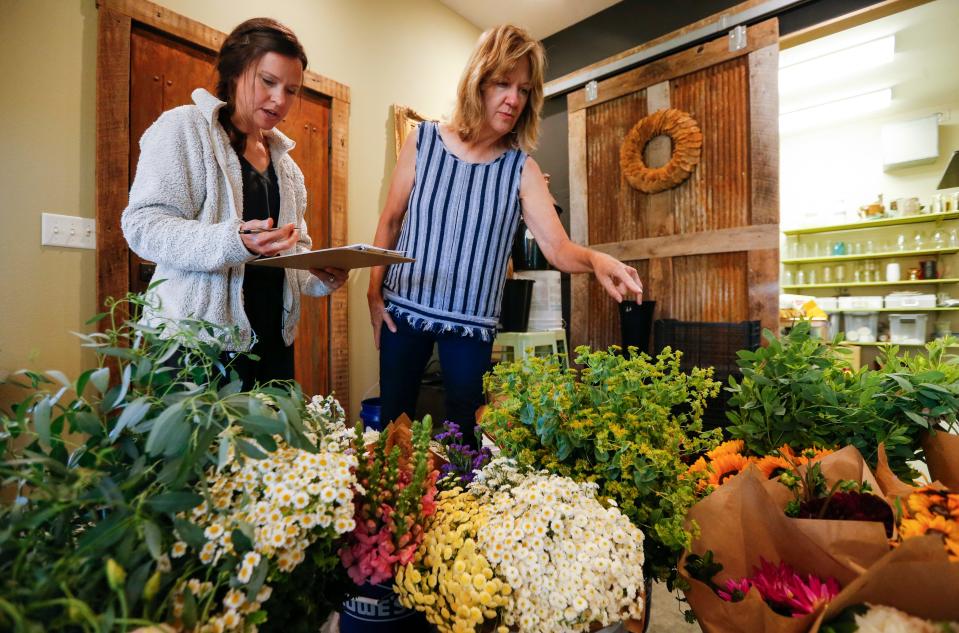
Serving as an example to others, Missouri Flower Exchange attended a Rooted Farmers conference in New Hampshire last year with 29 other collectives.
"We got there and realized, after talking to all of these collectives ... we have a really special group of people who are a part of our collective here," Randall said. "There's just not the competition. There is a genuine comradery among us all and we didn't realize how good we had it until we talked to other collectives because there is a little bit of competition."
Randall described farming as an "isolating" hobby, but expanding the collective has helped build a statewide network of not just farmers, but friends.
#FarmHer
Each of the 17 flower farms a part of Missouri Flower Exchange are either women-led or include a woman co-owner.
While the number of female farmers in the United States is on the rise, the demographic still accounts for less than half of the country's farmers. In 2017, women made up 36% of the country's farm producers, with only 9% of farm owned and operated entirely be women, according to the United States Census of Agriculture.
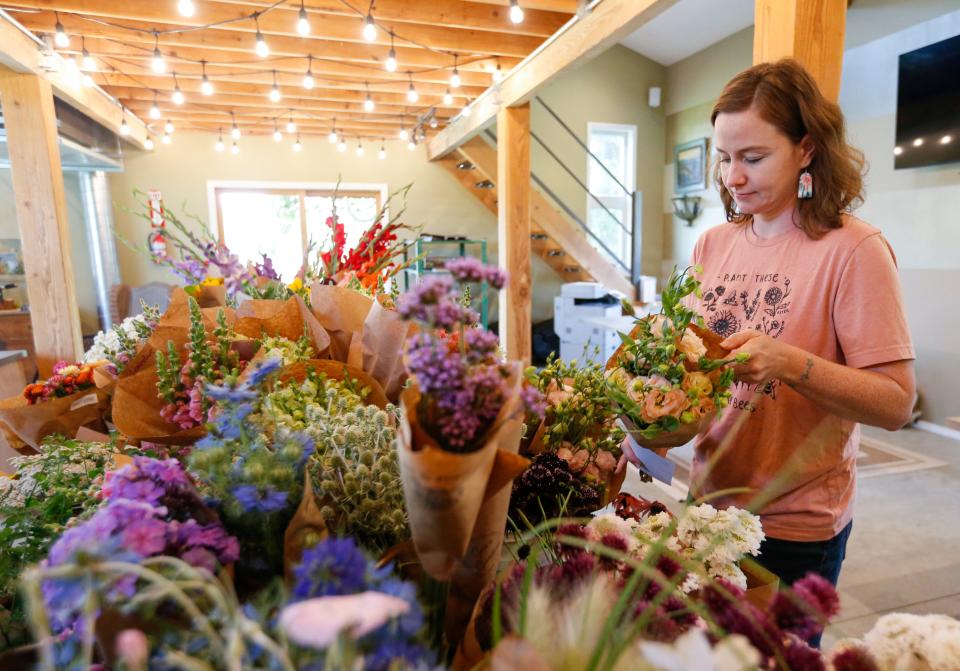
"I feel like when we tell our stories, they're all similar stories," Cherrelle Hitchcock, owner of Flora & Forge Farm, said about the women in the collective. "We wanted to be home with our kids or we loved working in gardens and then it just organically came about."
More: New store, Serendipity, brings bright energy, fresh smells to Commercial Street
Localizing the Slow Flower Movement
Collectives like Missouri Flower Exchange are a part of the Slow Flower Movement, which promotes the support of locally-grown flowers, in turn bridging the disconnect between consumers and the flowers they purchase.
"We're trying to be comparable to the wholesale (florists have) been working with in the past," Morton said of the collective. "It's impossible to promise what they can, theoretically. We're trying to find where the balance is — trying to do what they do but still with unpredictable, local products."
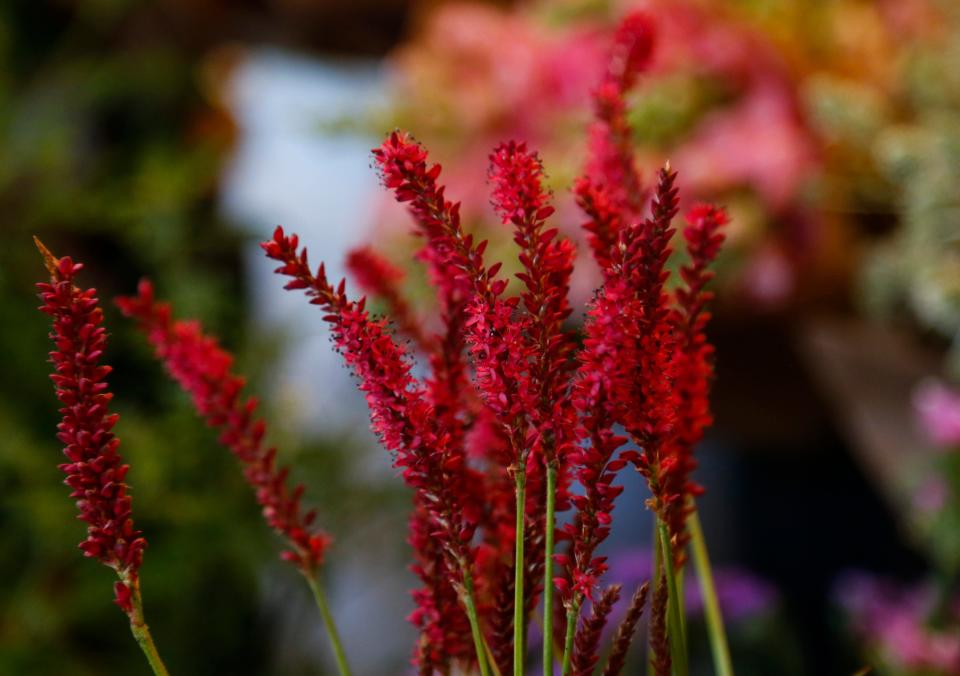
In the 2022 fiscal year, the United States imported $3.3 billion worth of cut flowers, plants and nursery stock from 81 countries, according to the U.S. Department of Agriculture.
When it comes to how these international products impact the United States' flower industry, over 80% of cut flowers sold in the country are imported, according to research published by the University of Minnesota. This number is quite high, in comparison to just 25% of fruit and vegetable crops that are imported into the country.
Not only do local flower farmers provide florists and consumers with native products, which help cultivate the local ecosystem, they also provide cleaner, more sustainable products.
Of the cut flowers and nursery stock imported into the country, Colombia provides 37% of this product, according to the United State Department of Agriculture. The transportation of flowers from Colombia to the United States is much more costly and impactful to the environment than an Ozarks farmer driving five to 10 miles with their flowers to a public marketplace.
Additionally, flower import regulations in the United States are quite slim. Though flowers entering the country have to pass inspections to prevent the passing of fungal and insect infestations, there is no set criteria for the amount of pesticides on these flowers, as long as they are being imported for decorative purposes, not consumables. Since 1997, the United States Department of Agriculture has not required written permits for the importation of cut flowers, unless berries are attached.
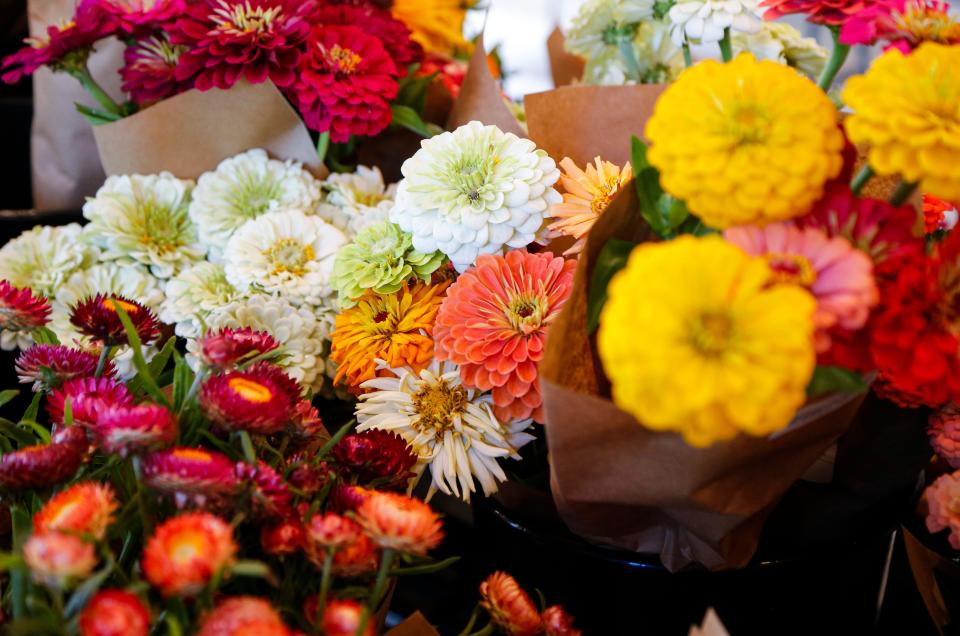
A popularly referenced study conducted in Belgium in 2016 sampled a set of 90 bouquets of the most commonly sold flowers in the country: 50 roses, 20 gerberas and 20 chrysanthemums. From the study, it was found that a total of 107 active substances were detected from the bouquets, the most being fungicides, used to kill or prevent the growth of fungi spores.
In effort to create safe, organic products, Morton said Missouri Flower Exchange encourages members to follow sustainable practices, which exclude the use of pesticides and herbicides.
This article originally appeared on Springfield News-Leader: Missouri Flower Exchange builds connection between farmers, consumers

